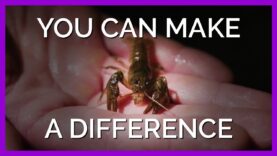- HOME
- VIDEO
- ARCHIVIO VIDEO
- CATEGORIE
- Animazioni
- Caccia e pesca
- Circhi, zoo, corride e altri spettacoli
- Discorsi, interviste e conferenze
- Documentari
- Investigazioni e inchieste
- Ippica, rodeo, corse, palio e altro
- La fabbrica degli animali
- Messaggi e riflessioni
- Musica e audio
- Pelli e pellicce
- Proteste, eventi e azioni
- Santuari e rifugi
- Storie e salvataggi
- Matrix – Il sistema
- Tradizioni popolari e religiose
- Trailer
- Trasporto animali
- TV e Media
- Video clip, spot e altro
- Vivisezione e sperimentazione
- AUTORI
- AgireOra
- Animals Australia
- AnimaNaturalis
- Animal Equality
- Animal Equality Italia
- Animal Outlook
- Animal Place
- Animal Rights
- Animal Save Movement
- Animal Welfare Foundation
- ARIWA – Animal Rights Watch e.V.
- Association L214
- Edgar’s Mission
- Essere Animali
- Farm Transparency Project
- Hof Butenland
- HorseRacingKills
- Igualdad Animal
- Laverabestia
- Linas Korta
- Mercy For Animals
- Oikeutta eläimille
- One Voice
- PACMA
- PETA
- PETA Asia
- Sea Shepherd
- SOKO Tierschutz
- The Humane Society of the United States
- Tras los Muros
- Woodstock Farm Sanctuary
- GALLERIE
- BLOG
- COMMUNITY
- SOCIAL STREAM
- RISORSE
- INFO
- SOSTIENI
HomeAutoriAnimal EqualityAnimal Equality Delivers Thousands of Signatures to U.N. Urging Ban on Live Animal at Wet Markets CINEMA OFF
CINEMA OFF CINEMA ON |
CINEMA ON |
RIPROD. AUTOMATICA
Sostieni LAVERABESTIA.ORG
Rendiamo visibile l'invisibile per dare voce a chi non ce l'ha.
Aiutaci a continuare a diffondere nuova consapevolezza.
Aiutaci a continuare a diffondere nuova consapevolezza.
SOSTIENI IL SITO
CHIUDI












